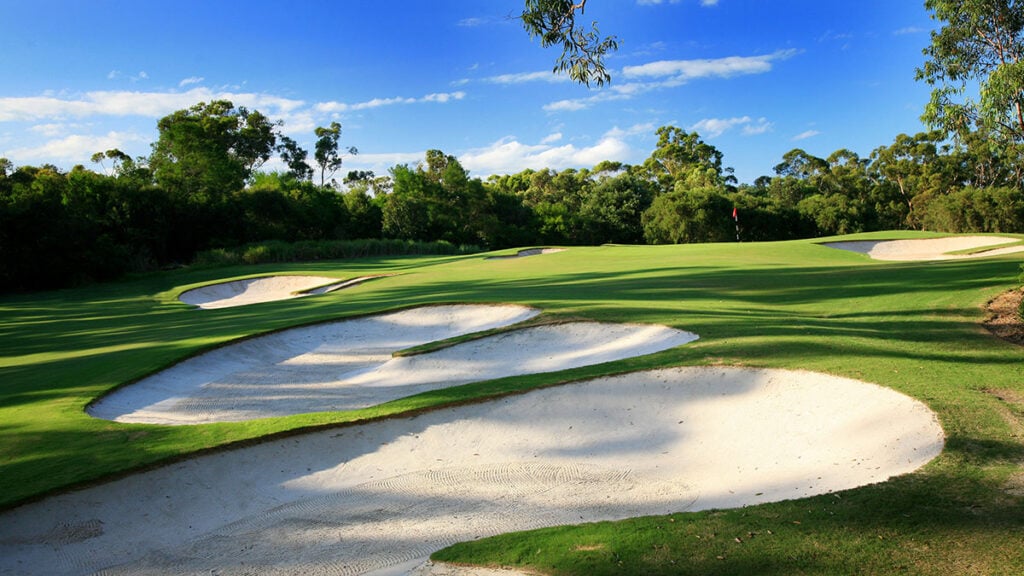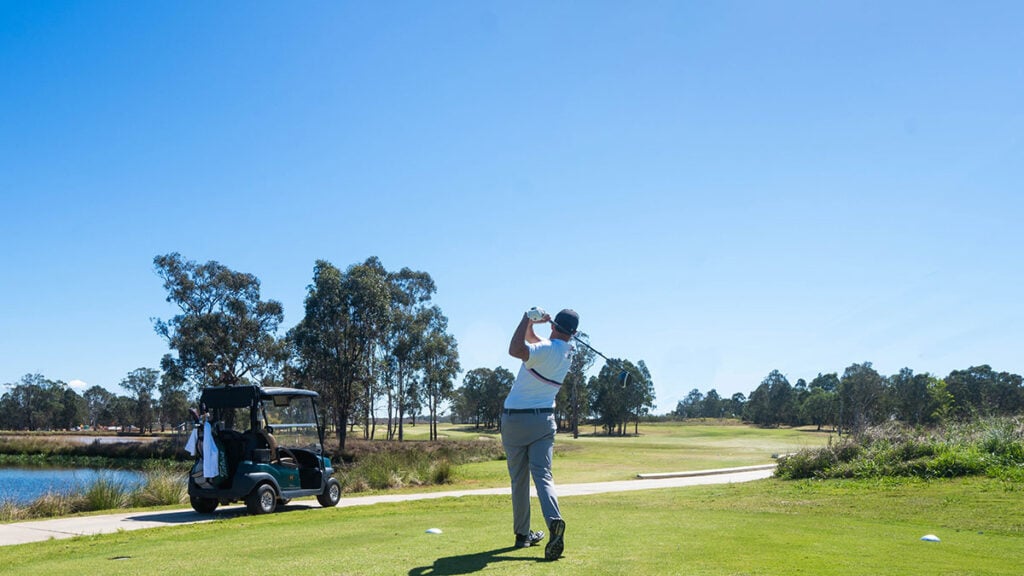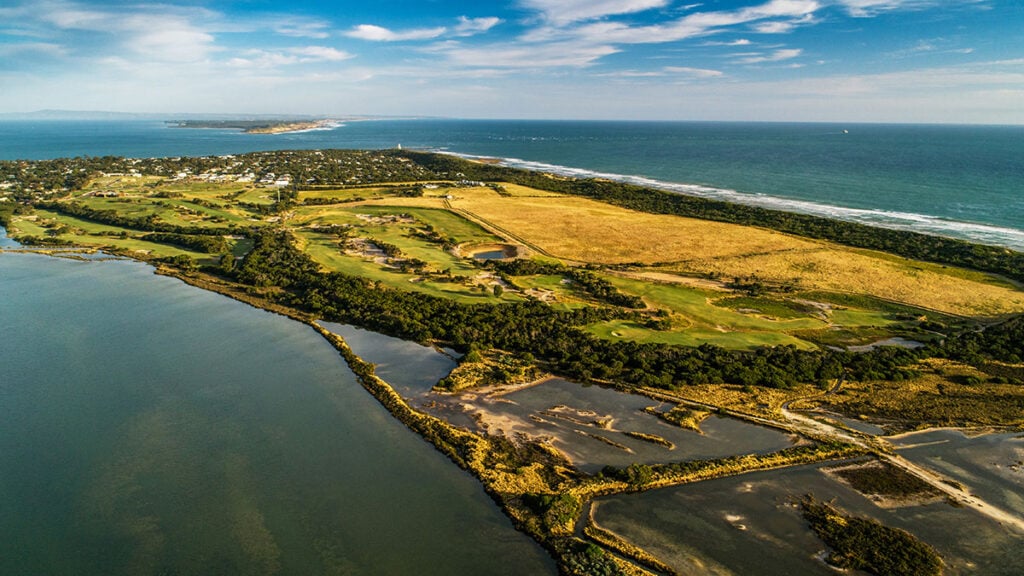Do what the pros do for better impact
Let me explain that headline, because last time I checked, the hands are attached to the arms. But I want you to separate them in your mind for a minute. Good players swing their arms down at a high rate of speed, which gets the body turning in support [above right]. Poor players often let their hands, mainly the trail hand, take over during the downswing. That instinct to use the hands slows down the arm swing and inhibits body movement [above left]. The result: less power and control.
So let’s get back to fast arms, slow hands. Get it right, and the shaft leans forward at impact for a downward strike that compresses the ball. You also get centre-face contact with the face squaring naturally, as opposed to too much trail-hand action, which can rotate the face closed too early or flip it upward through impact. In short, when the arms lead, it means better contact, less curve and more distance.
Here’s a great swing thought: make your lead arm beat the clubhead to the ball, with your lead wrist flat or even a little bowed. That’s how you keep the hands passive and put maximum punch into the shot. – with Peter Morrice
PRACTISE LIKE YOU PLAY
With the spring season here, it’s a good time to review how you practise. Do you work on things that translate to better play? Don’t just bang drivers into a wide-open range or chip to one flag from perfect lies. Your practice should simulate playing golf.
Take the driver. I want you to practise hitting wild slices and hooks, so you get a feel for what makes the ball curve. Change your grip, swing to the left, swing to the right. Then figure out what you need to do to take away some curve. For slicers, that might mean a stronger grip or making more body turn during the backswing. Do some self-discovery. You’ll be better equipped to fix those curveballs on the course.




